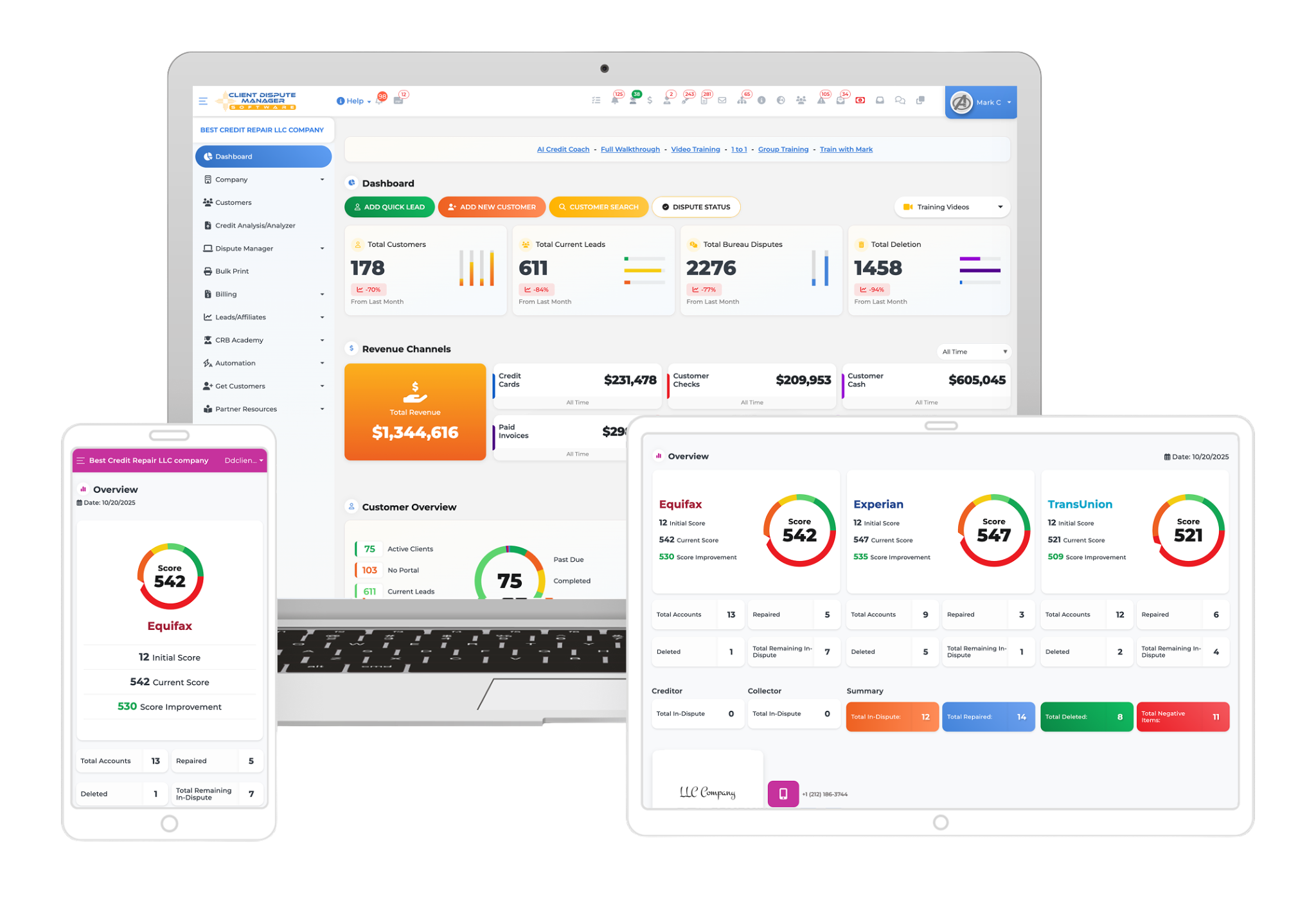Errors in a credit score report are common in the country. More than 34% of people find them in their reports at some point. As a credit repair agent, you might come across FCRA violations in your clients’ credit reports quite often.
However, sometimes the “errors” in a credit report might actually be violations of the recipient’s rights as per the Fair Credit Reporting Act (FCRA). To deal with them effectively, you first need to know how to identify them.
So, here’s a brief introduction to FCRA violations for new credit repair consultants.
Rights under the FCRA
The FCRA gives your clients the following major rights:
- Right to know which agency issued the report to a lender
- Right to acquire a free copy of the report under certain conditions
- Right to know/ask for their score
- Right to acquire transaction records relating to identity theft
Common FCRA Violations
Once you know the rights your clients have as per the FCRA, it’ll be easy for you to help them understand when these rights have been violated. The most common FCRA violations are:
- Old/Incorrect Information: If the report contains information about payments, charge-offs, or debts that have recently changed, then that’s an FCRA violation. As per the FCRA, information in a person’s credit report must be updated as soon as the changes occur.
- Ignoring Disputes: If you dispute errors on a client’s report, the credit bureaus and creditors have to follow the process and take necessary actions. If they fail to do so, that’s an FCRA violation.
- Privacy Violations: A credit reporting agency (CRA) is only permitted, by law, to provide credit reports to creditors, landlords, and insurance and utility companies. Without your client’s consent, they can’t supply the report to anyone without a valid permissible purpose, not even their employers.
- Identity Confusion: Sometimes, CRAs end up confusing two people with similar identification information and mixing up their reports. This is also an FCRA violation.
- Failure to Notify: Your client’s creditors are required by law to notify them of any important actions taken based on their reports. If they fail to do so, then that’s a strict violation of the FCRA.
FCRA Violation Remedies
If a client approaches you to help them claim damages for some severe FCRA violations, then your best option is to help them file a lawsuit.
There are certain factors that determine whether or not your client is entitled to collect damages and to what extent. There are two main classes in which these violations can fall:
- Willful violations
- Negligent violations
As a credit repair agent, you should let your clients know that if their violations are found to be negligent instead of willful, they’ll be entitled to much lesser, or even zero, damages.
Interested in getting more information about topics related to credit repair? Join a credit repair training course!
MC-Credit Solutions LLC Company has been helping credit repair business owners grow their companies for years now. The team of credit repair software experts at the company offers the Client Dispute Manager Software, a top-notch credit repair software. You can enroll in the credit repair training classes offered by Mark Clayborne.
Sign up for a free trial of the software today!
Bonus: Now that you have read this article, why not take your new skill and start your own credit business helping others? We have free training that can help you do just that.
Click here to learn more.


